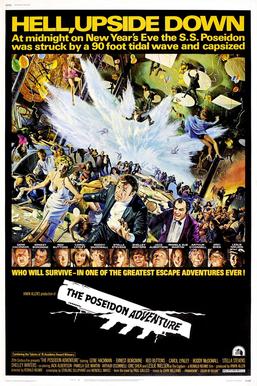I thoroughly enjoyed the material that we covered in class this week. I was raised in a French household and I was exposed, by my parents, to Godard’s work when I was a child. In fact, the French New Wave was the first film movement which really captivated my interest, and Godard’s Pierrot Le Fou will forever be a favorite film of mine.

The French New Wave movement, called “La Nouvelle Vague” in French, emerged in France the 1950s and 1960s, and is seen as one of the most influential cinematic movements to ever exist. This film movement emerged when French film directors grew tired of conforming to conventional filmmaking techniques and style. They were fed up with how repetitive and artificial the films at the time all seemed, and they strove towards delivering a cinema that was more relatable, and natural—much like Italian Neorealism.
The French New Wave is notable for the emergence of a new style of cinematography and editing. The “jump cut” emerged from the French New Wave, which is an abrupt transition from one scene to another, as opposed to the classic “continuity cut”, which is when the flow of a scene or action sequence is maintained, in order to preserve the illusion of reality on screen.
The thing I love the most about the French New Wave, was the liberty that directors and actors took when it came to the characters and stories. French New Wave films usually have eccentric characters, and very loose stories. During this film era, actors were often allowed to improvise dialogue and make changes to the plot. The result of this is a beautiful medley of disorder, and nonchalant French class.
The dramatic change of pace in Europe in the 1950s and 1960s greatly influenced the entire dynamic of Hollywood in the 1970s, and the American New Wave was born. Many major directors of the American New Wave were trained by Roger Corman, such as David Lynch, Roman Polanski, Stanley Kubrick, Woody Allen, Steven Spielberg, Francis Ford Coppola, and Arthur Penn.
This week’s screening, The Poseidon Adventure (1972), was an American disaster film directed by Ronald Neame. The Poseidon Adventure centers on a ship—SS Poseidon—on her way to Athens, from New York. Everything changes during New Year’s Eve celebrations. Not long after the clock strikes midnight and everyone has exchanged new year greetings and wishes, SS Poseidon capsizes after being hit by a tsunami. Panic ensues and the guests are torn about what to do. We follow Reverend Scott as he attempts to lead The Rosens, the Rogos, Susan, Robin, Acres, Nonnie and Martin to safety.

What I really enjoyed about this film—and maybe it’s because I have not seen many disaster films—was that nobody was safe. You never knew who was going to die, or when, and just when you thought the movie couldn’t spare any more characters, another one died a tragic death. It was thrilling, funny, and I had a great time watching it.

I found the jump cut really allowed a film to cover more and waste less time. To be able to quickly flow from one place to another in a short period, rather than following the whole travel. This seems like something so simple for us because we grew up knowing this idea and technique. This just helps to keep a film moving along and saves time for the director to better tell the tale or get his point across. I wish I knew what it was like to see some of these for the first time. Like was it mind blowing to experience or did other directors have an “Ah ha” moment.
I will have to disagree with your opinion on the disaster film idea of no one is safe. I couldn’t stand it because the people you like die and the ones who you would be fine with dying don’t. I know that sounds mean,but we all felt that. Like the singer who lost her brother and was struggling to keep going looked the happiest to be saved at the end, but was a pain during the whole film. I could see myself watching another film, but that may be down the line. I did like the film, but did not like the anticipation of waiting for the next to die.
LikeLike
I also love Pierrot Le Fou! Godard is definitely one of my favorite filmmakers of the French New Wave. He incorporates both rebellious themes and whimsical characters with a fresh outlook of cinematography. His artistic style and personality is very notable in his films, making him a true auteur to his work.
LikeLike